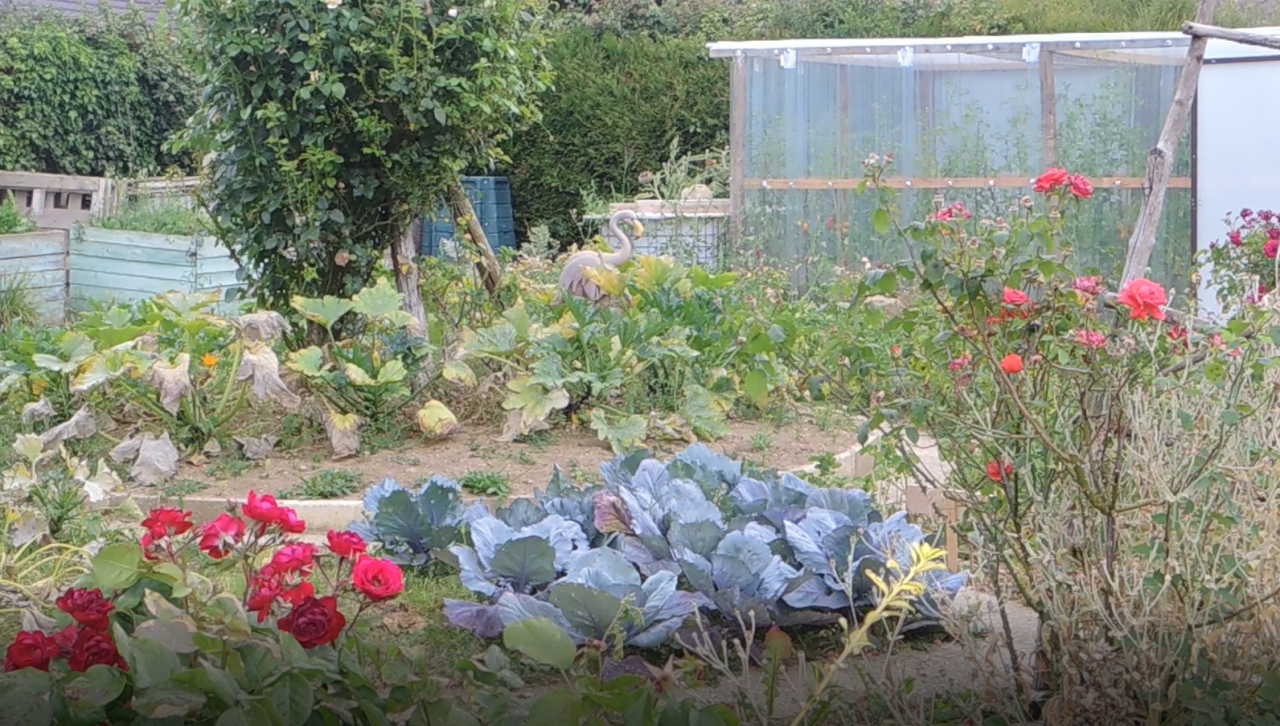
Once upon a time, in a resilient European Union, 7 cities decided to join forces and adapt Rome’s good practice of urban gardening. One of them is Caen, a 105,000 inhabitant city located in Normandy, Northern France and here is its story as part of RU:RBAN network.
Caen was awarded France’s 2nd greenest city (density) in 2020 thanks partly to its numerous urban gardens, either allotment (445) or community (12) ones. Caen’s raison d’être in the partnership was both to enhance its management of urban gardens and meet a new challenge. The only space left for the city to develop is the Peninsula, a vast former industrial wasteland, from the city centre to the Channel, meant to become a new eco-district. The area, though being reactivated step by step, is still derelict and polluted, and of poor appeal yet for the city inhabitants. However, they will shortly be moving in new housings at its tip and it is now urgent to open temporary “pioneer fronts” meant to bring footfall in the heart of the Peninsula and make ownership of the area as an housing district.
The council therefore decided to create a new community garden there, as a symbol of resilience. This new garden, somehow “special”, as crops can only be planted in trays due to soil pollution, responds to the city inhabitants’ aspirations: promoting a bigger picture, the garden will be dealing with all aspects of food, from farm to fork – a food hub – with a strong social inclusion and innovation components. This garden is called “the Barrels”, like the shape of the steel framework it is located under. It will be a main entrance to the new park of the eco-district.
Rome’s good practice was very inspiring for it helped us define a more efficient and innovative management of urban gardening. We adapted their governance model based on partnership agreements and regulations; we trained local people to the key role of urban “gardeniser”, i.e. support person facilitating coordination in the gardens; we discovered inspiring urban gardening cases throughout Europe and worldwide improving our new garden project with new ideas. The capacity-building activities were definitely the most valuable for Caen project.
The URBACT method requires the creation of an Urbact Local Group, gathering key stakeholders committing to the co-creation of the project at local level. Our ULG was the real treasure of our URBACT journey: it offered us the opportunity to gather stakeholders from very different backgrounds (property developers, farmers, gardeners, city officers, inhabitants…) creating a network around a shared project, designed with collective intelligence methods.
Our ULG proved to be very efficient, proposing concrete actions to move the project forward, identifying new stakeholders, gaining trust and support from the municipality. Thanks to our ULG, a project leader was identified and supported in their beginnings. The 1st actions were already implemented: gardening of course, with the support of a Farmbot®, the experimentation of city centre housings bio-waste composting, collaborative workshops, networking… They lived happily ever after at “La Maison”!

